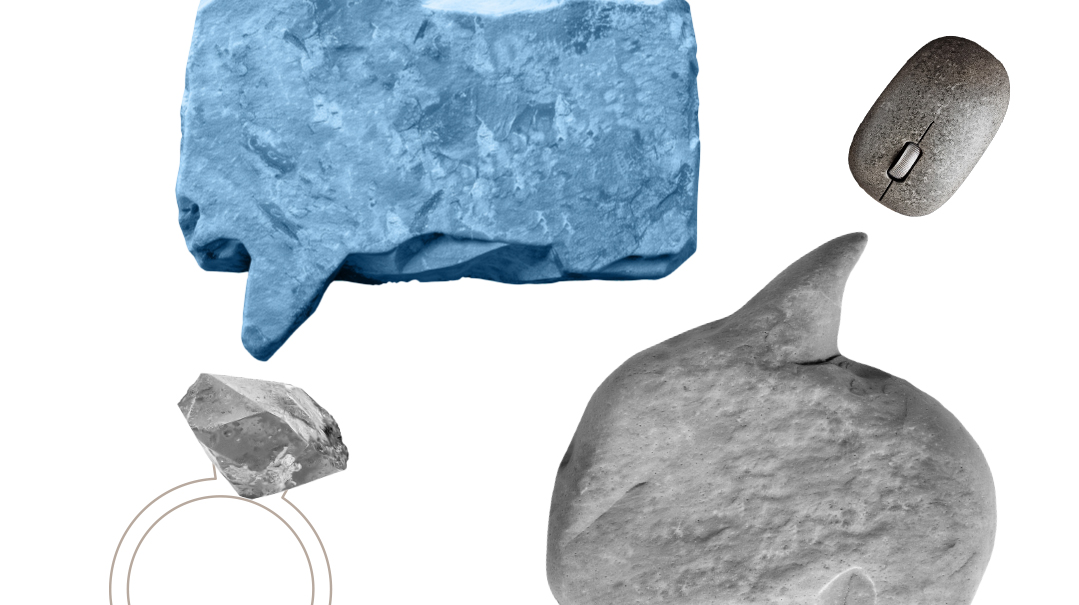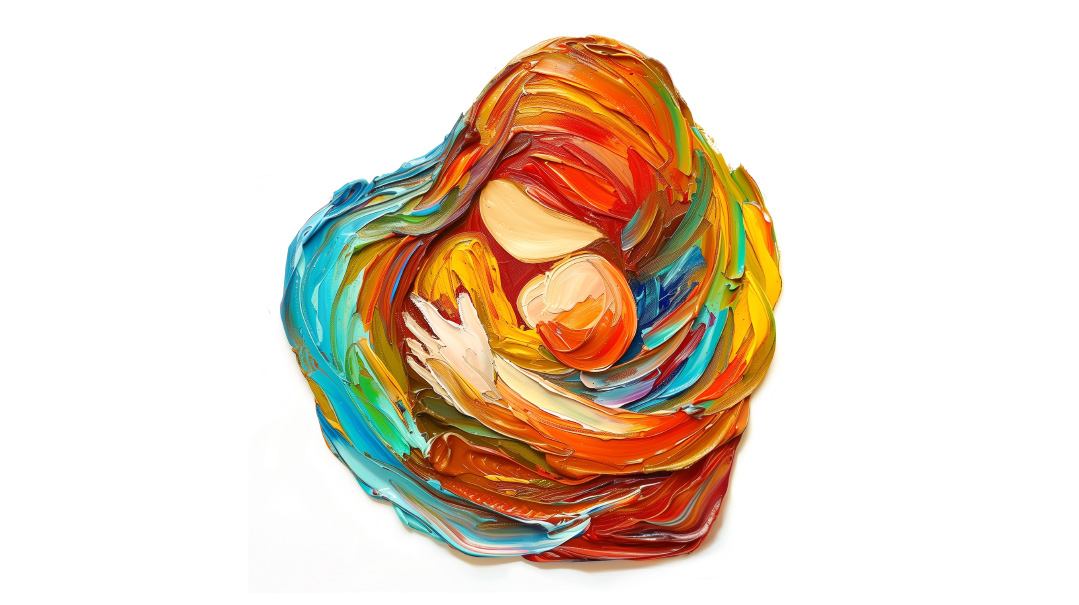In Good Faith
| March 1, 2022Rebbetzin Devorah Kirshboim’s faith is a fusion of Breslov and Novardok

When Rav Yaakov Galinsky, the renowned maggid from Eretz Yisrael, was on his deathbed, his family gathered around him and sang. One of the songs was something he’d taught them. “Don’t worry about what will be tomorrow, because you don’t know what tomorrow will bring. Tomorrow will come, and either the trouble will pass, or you will pass. And you will have been sorry about nothing.”
As they sang the message of calmness in the face of challenge that their father had always exemplified, his heart rate rose dramatically.
Rav Galinsky would often quote the Gemara that when a person passes on to the Next World, the first thing he’ll be asked is, “Did you carry out your business dealings with faithfulness?”
He offered his own interpretation. “Did you make emunah your business?”
It was how he lived his own life.
Rebbetzin Devorah Kirshboim, née Galinsky, absorbed her father’s message, and while she’s faced intense challenges, she never lost sight of the One behind it all.
Novardok Intersects with Uman
Yaakov Galinsky was only 14 when he left his home in Krinek, Poland, to attend Yeshivas Novardok in Bialystok.
“He was young and short and small and happy… and active,” Rebbetzin Kirshboim says. She laughs as she describes this extraordinary youth, full of chutzpah and humor, who grew into a ben Torah with an intense love of Hashem and the Jewish People.
In 1939, Reb Yaakov fled Bialystok together with some other bochurim. Before the Novardok yeshivah split up, a group of boys gathered next to a sefer Torah, and each boy pricked his finger and signed in blood his commitment to be moser nefesh for Torah.
Reb Yaakov’s group was captured and exiled to Siberia. A true talmid of Novardok, with their emphasis on self-mastery, even beatings and threats could not get him to show any fear of the Soviet authorities.
His biography, written by another daughter, describes a scene in the forests of Siberia. The Novardok bochurim, forced to work on Shabbos, would stand in a row and pass pieces of wood to each other, thus avoiding the melachah of carrying on Shabbos. The guard, impressed by their seeming efficiency, yelled out, “Look what you all have accomplished, compared to those lazy Lithuanians!”
“That’s because we love Father Stalin and Mother Russia!” yelled Yaakov Galinsky, without missing a beat. “But because we worked doubly hard, we deserve twice the amount of bread!” he added. And the starving boys received extra bread.
After the war, Reb Yaakov made his way to Tashkent and then Kazakhstan, where he was introduced to Tzivia Brod. Her family was hesitant about the shidduch; Reb Yaakov was scrawny, undernourished, and barely recovered from typhus, while Tzivia was “beautiful as the sun,” Rebbetzin Kirshboim says, and taller than Reb Yaakov.
Their backgrounds were dissimilar as well; Reb Yaakov was from Poland and a talmid of Novardok, while Tzivia had grown up in Uman, and her father, Reb Chaim Binyomin Brod, was an ardent Breslover chassid.
Rebbetzin Kirshboim shares a story that was typical of her grandparents’ unusual home. While the Brods suffered acute poverty, that didn’t stop Reb Chaim Binyomin from inviting company for Shabbos. When the guest entered the house Friday afternoon, it was bare, and there was certainly no soup or fish cooking.
“Where’s your husband?” the guest asked Mrs. Brod.
“He went to the tziyun [the kever of Rebbe Nachman] to ask for our Shabbos necessities,” she replied simply, as if she’d said that her husband had gone to the bank to withdraw cash.
The young man thought for a moment and then took out his wallet. “Oh, yes,” he said. “Your husband sent me this to give you.” It was the money he needed for his train ticket back home.
Mrs. Brod went to buy food, and when her husband returned from the tziyun, he was pleased but not surprised to find the house smelled of Shabbos food. After all, he’d davened at the tziyun of Rebbe Nachman; of course they had food for Shabbos!
The family enjoyed Shabbos together, but then reality set in. How was the boy supposed to return home if he’d just given his last ruble to the Brod family?
Then the guest remembered that he’d bought a lottery ticket before Shabbos, and in true storybook fashion, it was a winning ticket. He redeemed it and received the exact amount of money he’d given to his hosts for Shabbos food.
Growing Higher
After marrying, the new Galinsky couple wanted to leave Russia, and received visas to America, but Rebbetzin Tzivia tore them up.
“Not for this am I leaving Russia,” she said. Ultimately, in 1949, the couple managed to reach Eretz Yisrael, where they settled in Bnei Brak and raised a beautiful Torah family.
Rebbetzin Kirshboim recalls all sorts of Jews passing through their home, from Sephardic chachamim to chassidic admorim. “There was an openheartedness in our house….” she says. This gave the Galinsky children the ability to choose their own path in Yiddishkeit.
Rebbetzin Kirshboim herself returned to her mother’s roots, embracing Breslov chassidus. She recalls how it began. Her brother Nachman a”h had been learning in Ponevezh. One year on Rosh Hashanah he davened at the Breslov Yeshivah in Yerushalayim (this is going back 40 years, predating today’s Rosh Hashanah trips to Uman). Devorah, who was very close to her brother, was disappointed.
“How could you do this to our parents?” she asked him, referencing their worry he’d be asked to leave Ponevezh.
“Do you know anything about it?” Nachman rejoined. He handed her a sefer of Rebbe Nachman. “I’ll make a deal with you,” he said. “Read this and then we can discuss it.”
Devorah read it and was enchanted. She wholeheartedly embraced Breslov chassidus, and she and her husband have raised an empire of Torah-true children, grandchildren, and great-grandchildren who follow the Breslov path.
One day, her father, Rav Yaakov, asked her to explain why she’d chosen a different path from the one she’d been raised in. In response, she reminded him how he would get up before sunrise to daven on Rosh Hashanah, and quote the Mesillas Yesharim, “A person is born only to take pleasure in Hashem,” over and over again.
“Abba,” she said to her father, “you planted this idea inside me. You taught me that we should derive pleasure in our relationship with Hashem.” And that’s something she found in Breslov.
Even today, retired after many years of teaching, Rebbetzin Kirshboim has taken upon herself to strengthen girls from Breslov homes. There’s no Breslov school, and she feels strongly that these 450 girls, age seven to twenty, should understand and feel pride in their path.
She’s set up a “Breslov Bnos” of sorts, a network where small groups of girls meet monthly with a madrichah. Rebbetzin Kirshboim meets with the madrichot and gives over material to them, which they then share with their groups via fun, interactive activities. Zikui harabbim is something she absorbed in her parents’ home, and she carries that mandate with her.
Paradigm Shift
In her own life Rebbetzin Kirshboim had to dig deep into the reserves of faith she received both at home and from Breslov chassidus. She shares with us a little about the unimaginable challenge of having lost three children to Tay-Sachs. (In those years, Dor Yeshorim didn’t yet exist, though Rebbetzin Kirshboim was instrumental in eventually bringing Dor Yeshorim testing into yeshivos and Bais Yaakov high schools in Israel.)
She takes out pictures of the children who were born with this devastating disease and shows me them. They were beautiful.
She was only 21 when her first sick child, a girl, was born. Her daughter spent the last seven months of her life in the hospital until she passed away. The Rebbetzin kept very quiet about the situation. “I was so busy keeping it a secret that I had no energy left for the child,” she says.
Her fifth child, a boy, had the disease as well. But this one stayed at home until the end — no secrets this time. In timing beyond human comprehension, the day she got up from sitting shivah for this second sick child, her third sick child, also a boy, was born.
When this sixth child was a year old, they tested him for Tay-Sachs, and discovered he also had the disease. The Rebbetzin couldn’t understand what Hashem wanted from her, what sin she could have committed to bring upon herself this terrible punishment.
Eventually she went to see the Steipler, hoping he could offer her clarity, and wrote him a note with her question. He read the note, stood up, banged on the table, and shouted.
“Zeh onesh? Zeh zechus — It’s a punishment? It’s a merit!”
“Zeh onesh? Zeh zechus!
“Zeh onesh? Zeh zechus!”
This was nearly 40 years ago, before the culture of acceptance and support for special children that’s prevalent today. But the Steipler’s conviction helped the Rebbetzin heal.
The Rebbetzin, who’s been through so much and came out intact, advises women to find resources they can draw strength from — a study group, a friend, a shiur, or even hanging on the refrigerator a phrase that resonates.
In the tundra of Siberia, in the dizzying world of 2022, confusion and uncertainty are an inevitable part of our existence. But, Rebbetzin Kirshboim is quick to say, there’s one constant: We always need to hold on to our emunah and hope.
Sparing the Next Generation
Tay-Sachs is a genetic disorder that affects the nerve cells in the brain and spinal cord. It is usually fatal. While it’s rare in the general population (1 person in 300 is a carrier), it’s far more common among Ashkenazic Jews (roughly 1 in 30 is a carrier). It has been almost completely obliterated from the frum community today through premarital genetic testing. But when the Kirshboims were building a family, there was no such thing as Dor Yeshorim.
Dor Yeshorim was founded in America by Rabbi Yosef Ekstein. After losing four children to Tay-Sachs, he was determined to ensure that no other parents would suffer that kind of pain. He founded Dor Yeshorim, which offers premarital genetic testing to 25,000 young adults annually. Before a couple meets, they can call Dor Yeshorim, identifying themselves only by numbers, and find out if they are genetically compatible.
Rabbi Ekstein wanted to bring Dor Yeshorim testing into yeshivos and Bais Yaakov high schools in Israel. He asked Rebbetzin Kirshboim to speak at an assembly of 350 teachers and principals, both men and women, with the men behind a mechitzah.
“It’s a crime to allow young people to marry, if this disease can be prevented!” she told them. Then she described the suffering that her three sick children and the rest of the family experienced. It was extremely difficult for her to speak about her losses in a public forum, but after that, Dor Yeshorim testing became standard in yeshivos and Bais Yaakov schools. Today, an average of 50 to 60 unsuitable shidduchim per month are prevented through Dor Yeshorim, sparing so much pain and heartache.
(Originally featured in Family First, Issue 783)
Oops! We could not locate your form.






